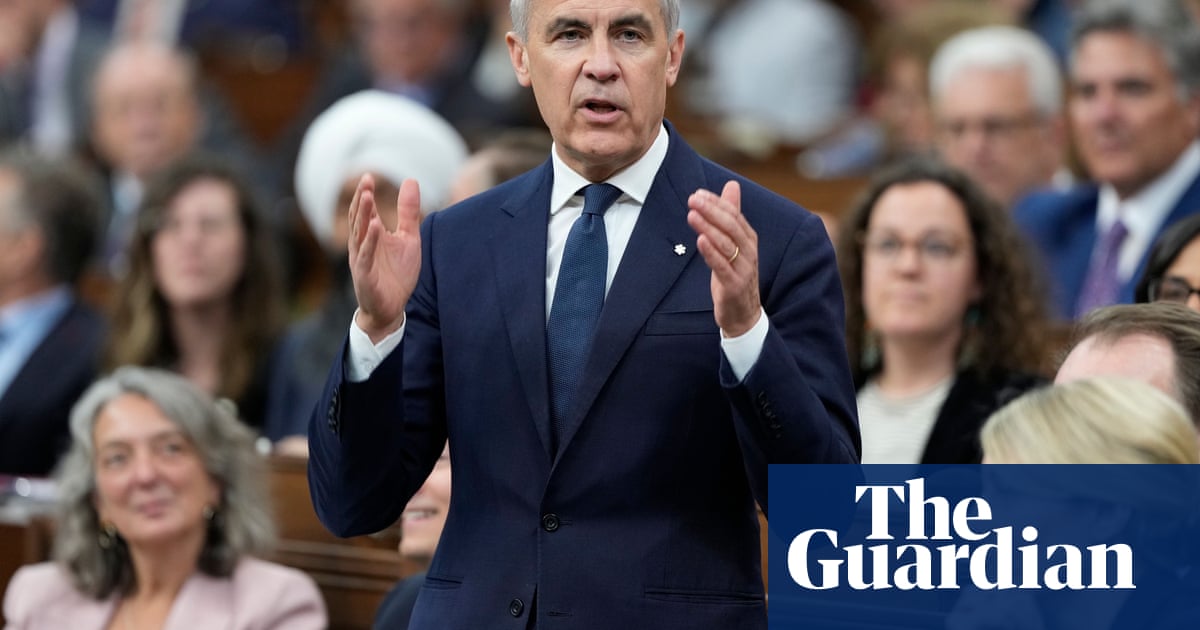Canada’s prime minister, Mark Carney, has defended his decision to invite India’s prime minister, Narendra Modi, to the upcoming G7 summit in Alberta, despite the conclusion of Canada’s federal police’s that the murder of a prominent Sikh activist in British Columbia wasorchestrated by the “highest levels” of the Indian government.
Carney declined to answer reporters’ questions over whether he believed Modi had a role in the assassination of Hardeep Singh Nijjar – a killing on Canadian soil that shattered relations between the two countries.
“There is a legal process that is literally under way and quite advanced inCanada, and it’s never appropriate to make comments with respect to those legal processes,” he said on Friday. Four Indian nationals living in Canada have been charged with Nijjar’s murder.
The summit, attended by key world leaders, runs from 15 to 17 June in Kananaskis, Alberta.
Carney said becauseIndiawas the “fifth largest economy in the world, the most populous country in the world and central to supply chains”, he said it was important to invite the country’s leader despite the continuing investigation to discuss energy, artificial intelligence and critical minerals.
“I extended the invitation to Prime Minister Modi and, in that context, he has accepted,” Carney said.
Modi said he was glad to receive a call from Carney and congratulated the Liberal leader on his recent electoral victory.
“As vibrant democracies bound by deep people-to-people ties, India and Canada will work together with renewed vigour, guided by mutual respect and shared interests. Look forward to our meeting at the summit,” Modi said in a statement.
Canada and India expelled each other’s top diplomatslast year over Nijjar’s politically motivated murder in the British Columbia city of Surrey. Canadian law enforcement also alleged India was involved in extortion, gang violence and intimidation.
Carney’s decision to invite Modi prompted an outraged response from the World Sikh Organization. “For Sikhs in Canada, this is a betrayal, not just of our community, but of core Canadian values. Prime Minister Carney’s decision to inviteNarendra Modi, while India continues to deny any role in the assassination of Bhai Hardeep Singh Nijjar and refuses to cooperate with Canadian authorities, is both shameful and dangerous,” its president, Danish Singh, wrote in a statement.
“We would never welcome leaders from Russia, China, or Iran under such circumstances. Yet India has done far more on Canadian soil in terms of foreign interference and transnational repression, including orchestrating murders, and is being rewarded with a red carpet welcome.”
Carney’s decision comes as his new government looks to ease tensions with other countries feuding with Canada.
Late Thursday, he posted a readout of a call with the Chinese premier, Li Qiang, and said there was interest on both sides to “regularize channels of communication” amid a trade spat that has cost both sides billions through tariffs on seafood, electric vehicles, canola, pork and peas. In the call, the first high-level telephone communication since becoming prime minister in March, Carney said both sides were also fighting illegal production of the opioid fentanyl.
Carney is also in direct talks with Donald Trump, the US president, to end a trade war between the two allies following economically damaging tariffs on Canadian steel and aluminum.
Doug Ford, the Ontario premier, told reporters the Canadian prime minister was engaged in “deep, deep discussions” with Trump’s team – a development confirmed by Canada’s industry minister hours later.
